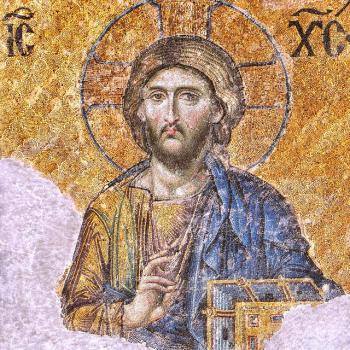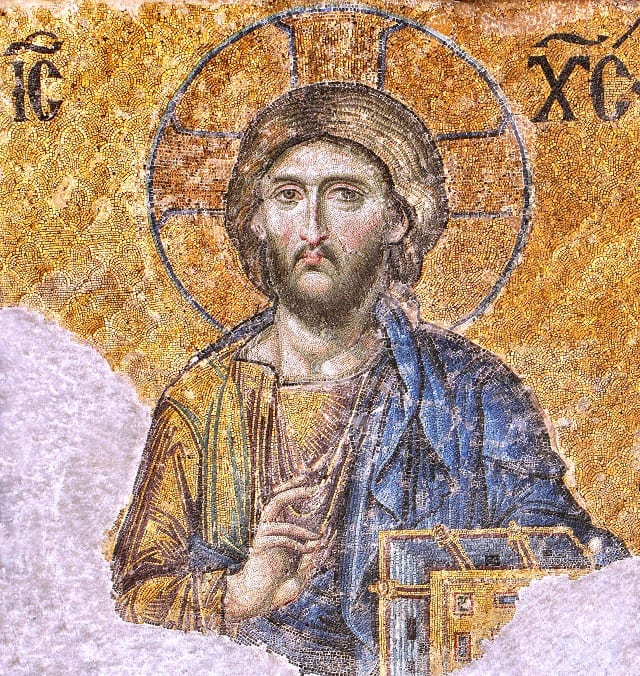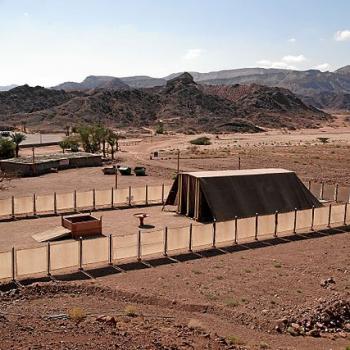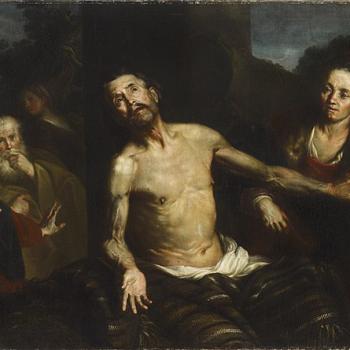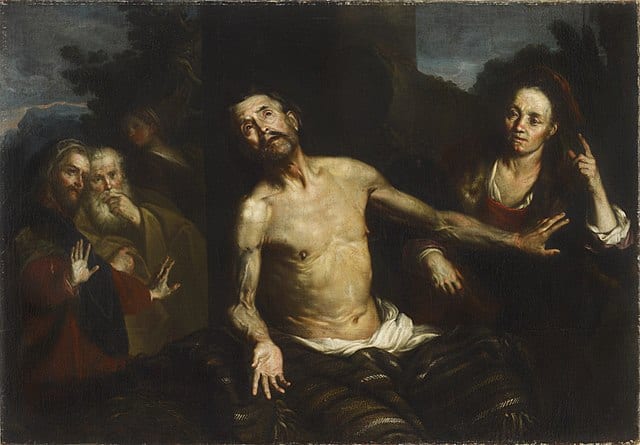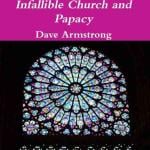Summary from August 2019 Until July 2020 (Alarming, Increasingly Quasi-Schismatic Spirit)

For background, see my previous related articles and those of my friend, 100% orthodox Catholic theologian Dr. Robert Fastiggi:
Bishops Viganò & Schneider Reject Authority of Vatican II [11-22-19]
Viganò, Schneider, Pachamama, & VCII (vs. Janet E. Smith) [11-25-19]
Abp. Viganò Descends into Fanatical Reactionary Nuthood (. . . Declares Pope Francis a Heretical Narcissist Who “Desacralized” & “Impugned” & “Attack[ed]” Mary) [12-20-19]
Dr. Fastiggi: Open Letter Re Abp. Viganò, Pope Francis, & Mary [2-22-20]
Abp. Viganò, the Pope, & the “Vicar of Christ” Nothingburger (with Catholic Theologian Dr. Robert Fastiggi and Apologist Karl Keating) [4-6-20]
Is Archbishop Viganò in Schism? [Dr. Robert Fastiggi, Where Peter Is, 6-13-20]
Archbishop Viganò On the Brink of Schism. The Unheeded Lesson of Benedict XVI (Sandro Magister, L’Espresso, 6-29-20)
All words following will be Archbishop Viganò’s own (linked to the documents where they are found, so context can be consulted), with the exception of my headings and links to related material in brackets, and the occasional textual clarification, also in brackets:
*****
Church, Catholic: Apostasy / Defectibility of
In fact, the figure of Christ is absent. The [Amazon] Synod working document testifies to the emergence of a post-Christian Catholic theology, now, in this moment. (8-2-19)
Pope Bergoglio thus proceeds to further implement the apostasy of Abu Dhabi, . . . (Letter #62, November 2019)
For more than six years now we have been poisoned by a false magisterium . . . Thus, over these last decades, the Mystical Body has been slowly drained of its lifeblood through unstoppable bleeding: the Sacred Deposit of Faith has gradually been squandered, dogmas denatured, . . . Now the Church is lifeless, covered with metastases and devastated. The people of God are groping, illiterate and robbed of their Faith, in the darkness of chaos and division. In these last decades, the enemies of God have progressively made scorched earth of two thousand years of Tradition. With unprecedented acceleration, thanks to the subversive drive of this pontificate, supported by the powerful Jesuit apparatus, a deadly coup de grace is being delivered to the Church. . . . The result of this abuse is what we now have before our eyes: a Catholic Church that is no longer Catholic; a container emptied of its authentic content and filled with borrowed goods. . . . The Church is shrouded in the darkness of modernism . . . (12-20-19)
. . . the darkening of the faith that has struck the heights of the Church. (3-14-20)
The Pope, the Hierarchy, and all Bishops, Priests and Religious must immediately and absolutely convert. This is something the laity are calling for, as they suffer because they have no firm and faithful guides. We cannot allow the flock which Our Divine Lord has entrusted to our care be scattered by faithless mercenaries. (3-29-20)
It is disconcerting that few people are aware of this race towards the abyss, and that few realize the responsibility of the highest levels of the Church in supporting these anti-Christian ideologies, . . .
It is no accident: what these men affirm with impunity, scandalizing moderates, is what Catholics also believe, namely: that despite all the efforts of the hermeneutic of continuity which shipwrecked miserably at the first confrontation with the reality of the present crisis, it is undeniable that from Vatican II onwards a parallel church was built, superimposed over and diametrically opposed to the true Church of Christ. This parallel church progressively obscured the divine institution founded by Our Lord in order to replace it with a spurious entity, corresponding to the desired universal religion that was first theorized by Masonry. (6-9-20)
. . . the disastrous situation in which the Church finds herself and the many evils that afflict her, long discourses among “specialists” appear inadequate and inconclusive. There is an urgent need to restore the Bride of Christ to her two-thousand-year Tradition . . . (6-14-20)
No one could have believed that, right under the vaults of the Vatican Basilica, the estates-general could be convoked that would decree the abdication of the Catholic Church and the inauguration of the Revolution. (As I have already mentioned in a previous article, Cardinal Suenens called Vatican II “the 1789 of the Church”).
. . . recognizing the infiltration of the enemy into the heart of the Church, the systematic occupation of key posts in the Roman Curia, seminaries, and ecclesiastical schools, the conspiracy of a group of rebels—including, in the front line, the deviated Society of Jesus—which has succeeded in giving the appearance of legitimacy and legality to a subversive and revolutionary act. . . . It will be for one of his Successors, the Vicar of Christ, in the fullness of his apostolic power, to rejoin the thread of Tradition there where it was cut off. (6-26-20)
. . . the crisis that has afflicted the Church since Vatican II and has now reached the point of devastation. (7-3-20)
[for the refutation, see:
“Could the Catholic Church Go Off the Rails?” (Indefectibility) [1997]
Indefectibility of Holy Mother Church: Believe It Or Not [2002]
Indefectibility: Does God Protect His Church from Doctrinal Error? [11-1-05; abridged and reformulated a bit on 2-14-17]
“The Gates of Hell Shall Not Prevail” Against the Church [11-11-08]
Indefectibility of the One True Church (vs. Calvin #9) [5-16-09]
Indefectibility & Apostolic Succession (vs. Calvin #10) [5-18-09]
Dialogue with a Lutheran on Ecclesiology & Old Testament Indefectibility Analogies [11-22-11]
The Bible on the Indefectibility of the Church [2013]
Michael Voris’ Ultra-Pessimistic Views Regarding the Church [7-3-13]
Critique of Three Michael Voris Statements Regarding the State of the Church [7-3-13]
Indefectibility, Fear, & the Synod on the Family [9-30-15]
Salesian Apologetics #1: Indefectibility of the Church [2-4-20] ]
Catholic Church, Conspiracies to Overthrow (Masonic and Otherwise)
What leaves one truly scandalized is seeing how the top levels of the Hierarchy are openly placing themselves at the service of the Prince of this world, adopting the demands made by the United Nations for the globalist agenda, Masonic brotherhood, Malthusian ecologism, immigrationism… What is being created is a single world religion without dogmas or morals, according to the wishes of Freemasonry . . . (5-29-20)
That the Masonic octopus clutches the Catholic Church in its tentacles is neither a rumor nor a secret. Right in the Vatican, the very stronghold of the Catholic Church, Masonry has armed itself with diabolical patience and waited until it reached the levers of power and command. The heart of Catholicity, which by divine mandate must be a beacon, has long been home to a pomp and pretention that decays it. (6-2-20)
What the world wants, at the instigation of Masonry and its infernal tentacles, is to create a universal religion that is humanitarian and ecumenical, from which the jealous God whom we adore is banished. And if this is what the world wants, any step in the same direction by the Church is an unfortunate choice which will turn against those who believe that they can jeer at God. The hopes of the Tower of Babel cannot be brought back to life by a globalist plan that has as its goal the cancellation of the Catholic Church, in order to replace it with a confederation of idolaters and heretics united by environmentalism and universal brotherhood. . . .
[O]n March 13, 2013, the mask fell from the conspirators, who were finally free of the inconvenient presence of Benedict XVI and brazenly proud of having finally succeeded in promoting a Cardinal who embodied their ideals, their way of revolutionizing the Church . . . (6-9-20)
Mass: Ordinary Form Mass (of St. Paul VI) is a Bad Thing
[T]he conciliar disaster of the Novus Ordo Missae is undergoing further modernization . . . This is a further step in the direction of regression towards the naturalization and immanentization of Catholic worship, towards a pantheistic and idolatrous Novissimus Ordo. The “Dew,” an entity present in the “theological place” of the Amazonian tropics — as we learned from the synodal fathers — becomes the new immanent principle of fertilization of the Earth, which “transubstantiates” it into a pantheistically connected Whole to which men are assimilated and subjugated, to the glory of Pachamama. And here we are plunged back into the darkness of a new globalist and eco-tribal paganism, with its demons and perversions. From this latest liturgical upheaval, divine Revelation decays from fullness to archaism; from the hypostatic identity of the Holy Spirit we slide towards the symbolic and metaphorical evanescence proper to dew which masonic gnosis has long made its own. . . . worship secularized and gradually profaned, morality sabotaged, the priesthood vilified, the Eucharistic Sacrifice protestantized and transformed into a convivial Banquet . . . (12-20-19)
If we have a liturgy that is Protestantized and at times even paganized, we owe it to the revolutionary action of Msgr. Annibale Bugnini and to the post-conciliar reforms. (6-9-20)
. . . the Holy Mass – horribly disfigured in the name of ecumenism . . . (7-1-20)
[for the refutation, see:
“New” / Ordinary Form / Pauline Mass: a Traditional Defense (with Massive Historical Documentation, + Summary of Vatican II on Liturgical Reform) [6-18-08]
Reactionary & Traditionalist Reaction to Summorum Pontificum [6-23-08]
Peter Kwasniewski, Fr. Thomas Kocik and a Growing Chorus Disagree with Pope Benedict XVI Regarding the Ordinary Form of the Roman Rite Mass (Or, Reports of the Death of the Reform of the Reform are Greatly Exaggerated) [+ Part Two] [2-26-14]
Who’s Defending Pope Benedict’s Summorum Pontificum Now? [2-26-14]
You Prefer the Tridentine / EF Mass? Great! You Prefer Novus Ordo / OF (like me)? Great! [8-14-15]
Two Forms of One Rite (Pope Benedict XVI) [11-4-15]
Critique of Criticisms of the New Mass [11-5-15]
Worshiping the TLM vs. Worshiping God Through It [12-16-15]
Traditionalist Misuse of Ratzinger “Banal” Quote [12-17-15]
Chris Ferrara vs. Pope Benedict XVI (New Mass) [12-18-15]
Vs. Pasqualucci Re Vatican II #12: Sacrosanctum Concilium & Liturgical “Creativity” [7-22-19] ]
Pope Francis: Deceiver & Liar / Deliberately Ambiguous
His action seeks to violate the Sacred Deposit of Faith and to disfigure the Catholic Face of the Bride of Christ by word and action, through duplicity and lies, through those theatrical gestures of his that flaunt spontaneity but are meticulously conceived and planned . . . His action makes use of magisterial improvisation, of that off the cuff and fluid magisterium that is as insidious as quicksand . . . that seeming and ostentatious devotion . . . Once again, the Pope’s words have the scent of a colossal lie . . . it is impossible to seek clarity [with Pope Francis], since the distinctive mark of the modernist heresy is dissimulation. Masters of error and experts in the art of deception, . . . And so the lie, obstinately and obsessively repeated, ends up becoming “true” and accepted by the majority. Also typically modernist is the tactic of affirming what you want to destroy, using vague and imprecise terms, and promoting error without ever formulating it clearly. This is exactly what Pope Bergoglio does, with his dissolving amorphism of the Mysteries of the Faith, with his doctrinal approximation . . . (12-20-19)
And it should be said that what the innovators [in Vatican II] succeeded in obtaining by means of deception, cunning and blackmail was the result of a vision that we have found later applied in the maximum degree in the Bergoglian “magisterium” of Amoris Laetitia. (7-3-20)
Pope Francis: Evangelism and Missionary Work (Alleged Antipathy to)
[T]he current Papacy has completely eliminated any form of apostolate, and says the Church must not perform any missionary activity, which it calls proselytism. (3-29-20)
[for the refutation, see:
Did Pope Francis just say that evangelization is “nonsense”? 8 things to know and share (Jimmy Akin, National Catholic Register, 10-1-13)
Pope Francis on “Proselytism” (Jimmy Akin, Catholic Answers blog, 10-21-13)
Did Pope Francis just diss apologists? 9 things to know and share (Jimmy Akin, National Catholic Register, 3-9-14)
When Pope Francis rips ‘proselytism,’ who’s he talking about? He really may not be talking about, or to, Catholics at all (John L. Allen, Jr., Crux, 1-27-15)
Dialogue: Pope Francis Doesn’t Evangelize? [4-29-16]
Pope Francis Condemns Evangelism? Absolutely Not! [10-17-16]
Is Pope Francis Against Apologetics & Defending the Faith? [11-26-19]
Debate: Pope Francis on Doctrine, Truth, & Evangelizing (vs. Dr. Eduardo Echeverria) [12-16-19]
Francis: Evangelize by Example, not Pushing Your Faith on Others (Fr. Matthew P. Schneider, Through Catholic Lenses, 12-23-19)
Dialogue: Pope Francis vs. Gospel Preaching & Converts? No! (vs. Eric Giunta) [1-3-20]
Abp. Viganò Whopper #289: Pope Forbids All Evangelism (?) [4-8-20]
Pope Francis: Heretic / Modernist
Christians expect a clear answer from the Pope himself. The thing is too important; it is essential: Yes, I believe that Christ is the Son of God made Man, the only Savior and Lord. . . . All Christians await this clarification from him, not from others, and by virtue of their baptism have the right to have this response. (10-10-19)
[Jimmy Akin refuted this outrageous ludicrosity: Clarity is Next to Godliness (Catholic Answers Magazine, 10-10-19) ]
Pope Bergoglio thus proceeds to further implement the apostasy of Abu Dhabi, the fruit of pantheistic and agnostic neo-modernism that tyrannizes the Roman Church, . . . (Letter #62, November 2019)
The tragic story of this failed pontificate advances with a pressing succession of twists and turns. Not a day passes: from the most exalted throne the Supreme Pontiff proceeds to dismantle the See of Peter, using and abusing its supreme authority, not to confess but to deny; not to confirm but to mislead; not to unite but to divide; not to build but to demolish. Material heresies, formal heresies, idolatry, superficiality of every kind . . . “demythologizing” the papacy . . . With Pope Bergoglio — as with all modernists . . . he . . . demolishes the most sacred dogmas, . . . (12-20-19)
In his Abu Dhabi declaration, Pope Francis said that God wants all religions. Not only is this a blatant heresy, it is also a very serious apostasy and a terrible blasphemy. Saying that God wants to be worshipped as something other than how He revealed Himself means that the Incarnation, Passion, Death and Resurrection of our Savior are completely meaningless. It means that the reason for founding the Church, the reason for which millions of holy Martyrs gave their lives, for which the Sacraments were instituted, along with the Priesthood and the Papacy itself, are all meaningless. The Pope, . . . must immediately and absolutely convert. (3-29-20)
[the pope has clarified (on 4-3-20) that he referred to God’s permissive will (“why does God allow many religions? God wanted to allow this: Scolastica theologians used to refer to God’s voluntas permissiva.“), not perfect will. See further clarification]
[I]t is obvious that Bergoglio, along with those who are behind him and support him, aspires to preside over this infernal parody of the Church of Christ. (5-29-20)
[for the refutation, see:
Documentation: Pope Francis is Orthodox, Pro-Tradition and Against Modernism (Dan Marcum, Catholic Answers Forum, 1-9-15)
Can a Pope Be a Heretic? (Jacob W. Wood, Crisis Magazine, 3-4-15)
Is Pope Francis a Heretic? (+ Part II) (Tim Staples, Catholic Answers blog, October 3-4, 2016)
The Heretical Pope Fallacy (Emmet O’Regan, La Stampa / Vatican Insider, 11-12-17)
Pope Francis On . . . [31 different issues] (Mark Mallett, The Now Word, 4-24-18)
Papal Critics Concede: No Proof of Canonical Papal Heresy [5-10-19] ]
Pope Francis: Idolater (So-Called “Pachamama”)
The enthronement of that Amazonian idol, even at the altar of the confession in St. Peter’s Basilica, . . . the synodal event, which marked the investiture of pachamama in the heart of Catholicity . . . idolatrous statues of rare ugliness, . . . (12-20-19)
They have even committed acts of unprecedented gravity, such as we saw with the adoration of the pachamama idol in the Vatican itself. . . . What we must do is ask forgiveness for the sacrilege perpetrated in the Basilica of Saint Peter’s, and reconsecrate it before the Holy Sacrifice of Mass can be said there. . . . he himself brought off a terrible sacrilege before the eyes and ears of the whole world, before the very Altar of the Confession of Saint Peter, a real profanation, an act of pure apostasy, with those filthy and satanic images of pachamama. (3-29-20)
. . . Bishops carrying the unclean idol of the pachamama on their shoulders, sacrilegiously concealed under the pretext of being a representation of sacred motherhood. . . . the image of an infernal divinity was able to enter into Saint Peter’s . . . we see an idol of wood adored by religious sisters and brothers, . . . If the pachamama could be adored in a church, we owe it to Dignitatis Humanae. (6-9-20)
[for the refutation, see:
Biblical Idolatry: Authentic & Counterfeit Conceptions (2015)
Our Lady of the Amazon – 2018 Video Footage Emerges (Dr. Pedro Gabriel, Where Peter Is, 10-17-19)
“Pachamama” [?] Statues: Marian Veneration or Blasphemous Idolatry? [11-5-19]
“Pachamama” Fiasco: Hysterical Reactionaryism, as Usual [11-8-19]
Pachamama – the missing piece of the puzzle (Dr. Pedro Gabriel, Where Peter Is, 11-10-19)
“Pachamama” Confusion: Fault of Vatican or Catholic Media? [11-12-19]
Pope Francis: Mary & Catholic Mariology (Alleged Antipathy to)
Pope Bergoglio once again gave vent to his evident Marian intolerance . . . The Pontiff’s intolerance is a manifest aggression . . . After having downgraded her to the “next door neighbor” or a runaway migrant, or a simple lay woman with the defects and crises of any woman marked by sin, or a disciple who obviously has nothing to teach us; after having trivialized and desacralized her, like those feminists who are gaining ground in Germany with their “Mary 2.0” movement which seeks to modernize Our Lady and make her a simulacrum in their image and likeness, Pope Bergoglio has further impugned the August Queen and Immaculate Mother of God, who “became mestiza with humanity… and made God mestizo.” With a couple of jokes, he struck at the heart of the Marian dogma and the Christological dogma connected to it. . . .
To attack Mary is to venture against Christ himself; to attack the Mother is to rise up against her Son and to rebel against the very mystery of the Most Holy Trinity. . . . Pope Bergoglio no longer seems to contain his impatience with the Immaculate . . . [he] deserts the solemn celebration of the Assumption and the recitation of the Rosary with the faithful . . . nothing less than a declaration of war on the Lady and Patroness of all the Americas, . . . he . . . demolishes the most sacred dogmas, as he did with the Marian dogmas of the Ever-Virgin Mother of God. (12-20-19)
[He makes] doctrine malleable, morals adaptable, liturgy adulterable, and discipline disposable. (6-9-20)
[for the refutation, see:
Yes, Virginia, the Pope Believes Mary is Immaculate [12-29-18]
Abp. Viganò Descends into Fanatical Reactionary Nuthood (. . . Declares Pope Francis a Heretical Narcissist Who “Desacralized” & “Impugned” & “Attack[ed]” Mary) [12-20-19]
Pope Francis’ Deep Devotion to Mary (Esp. Mary Mediatrix) [12-23-19]
Pope Francis and Mary Co-Redemptrix (Robert Fastiggi, Where Peter Is, 12-27-19)
Pope Francis and the coredemptive role of Mary, the “Woman of salvation” (Mark Miravalle & Robert Fastiggi, La Stampa, 1-8-20)
Dr. Fastiggi: Open Letter Re Abp. Viganò, Pope Francis, & Mary [2-22-20] ]
Pope Francis: Mentally Ill / Delusions of Grandeur
. . . in those ethereal spaces that can highlight a pathological delirium of illusory omnipotence, . . . (12-20-19)
Pope Francis: Narcissist
. . . through which he exalts himself in a continuous narcissistic self-celebration, while the figure of the Roman Pontiff is humiliated and the Sweet Christ on earth is obscured. . . . always in the spotlight of the cameras . . . (12-20-19)
. . . in his umpteenth interview. (3-29-20)
Pope Francis: Pantheist
Pope Bergoglio thus proceeds to further implement the apostasy of Abu Dhabi, the fruit of pantheistic and agnostic neo-modernism that tyrannizes the Roman Church, . . . (Letter #62, November 2019)
Vatican II: Heretical / Modernist / Apostate
. . . pantheistic and agnostic neo-modernism that tyrannizes the Roman Church, germinated by the conciliar document Nostra Aetate. We are compelled to recognize it: the poisoned fruits of the “Conciliar springtime” are before the eyes of anyone . . . the teachings that preceded Vatican II have been thrown to the winds, as intolerant and obsolete. The comparison between the pre-conciliar Magisterium and the new teachings of Nostra aetate and Dignitatis humanae — to mention only those — manifest a terrible discontinuity, . . . (Letter #62, November 2019)
. . . a sort of extreme synthesis of all the conciliar misconceptions and post-conciliar errors that have been relentlessly propagated, without most of us noticing. Yes, because the Second Vatican Council opened not only Pandora’s Box but also Overton’s Window, and so gradually that we did not realize the upheavals that had been carried out, the real nature of the reforms and their dramatic consequences, nor did we suspect who was really at the helm of that gigantic subversive operation, which the modernist Cardinal Suenens called “the 1789 of the Catholic Church.” (12-20-19)
The religious relativism which was brought in with Vatican II led many people to believe that the Catholic Faith was no longer the only means to salvation, or that the Blessed Trinity was the Only True God. (3-29-20)
I believe that the essential point for effectively conducting a spiritual, doctrinal and moral battle against the enemies of the Church is the persuasion that the present crisis is the metastasis of the conciliar cancer: If we have not understood the causal relationship between Vatican II and its logical and necessary consequences over the course of the last sixty years, it will not be possible to steer the rudder of the Church back to the direction given it by her Divine Helmsman, the course that it maintained for two thousand years. (5-29-20)
. . . the presumed legitimacy of the exercise of religious freedom that the Second Vatican Council theorized, contradicting the testimony of Sacred Scripture and the voice of Tradition, as well as the Catholic Magisterium which is the faithful guardian of both. . . . causal link between the principles enunciated or implied by Vatican II and their logical consequent effect in the doctrinal, moral, liturgical, and disciplinary deviations that have arisen and progressively developed to the present day. . . . Attempts to correct the conciliar excesses – invoking the hermeneutic of continuity – have proven unsuccessful: . . . from the moment it was theorized in the conciliar commissions, ecumenism was configured in a way that was in direct opposition to the doctrine previously expressed by the Magisterium. . . . the progressives and modernists astutely knew how to hide equivocal expressions in the conciliar texts, which at the time appeared harmless to most but that today are revealed in their subversive value. It is the method employed in the use of the phrase subsistit in: saying a half-truth not so much as not to offend the interlocutor (assuming that is licit to silence the truth of God out of respect for His creature), but with the intention of being able to use the half-error that would be instantly dispelled if the entire truth were proclaimed. . . . And it is surprising that people persist in not wanting to investigate the root causes of the present crisis, limiting themselves to deploring the present excesses as if they were not the logical and inevitable consequence of a plan orchestrated decades ago. If the pachamama could be adored in a church, we owe it to Dignitatis Humanae. . . .
The Council was used to legitimize the most aberrant doctrinal deviations, the most daring liturgical innovations, and the most unscrupulous abuses, all while Authority remained silent. This Council was so exalted that it was presented as the only legitimate reference for Catholics, clergy, and bishops, obscuring and connoting with a sense of contempt the doctrine that the Church had always authoritatively taught, and prohibiting the perennial liturgy that for millennia had nourished the faith of an uninterrupted line of faithful, martyrs, and saints. Among other things, this Council has proven to be the only one that has caused so many interpretative problems and so many contradictions with respect to the preceding Magisterium, while there is not one other council – from the Council of Jerusalem to Vatican I – that does not harmonize perfectly with the entire Magisterium or that needs so much interpretation.
. . . a form of pan-ecumenism that reduces the Truth of the One Triune God to the level of idolatries and the most infernal superstitions; the acceptance of an interreligious dialogue that presupposes religious relativism and excludes missionary proclamation; the demythologization of the Papacy, pursued by Bergoglio as a theme of his pontificate; the progressive legitimization of all that is politically correct: gender theory, sodomy, homosexual marriage, Malthusian doctrines, ecologism, immigrationism… If we do not recognize that the roots of these deviations are found in the principles laid down by the Council, it will be impossible to find a cure: if our diagnosis persists, against all the evidence, in excluding the initial pathology, we cannot prescribe a suitable therapy. (6-9-20)
Regarding the possibility of making a correction to the acts of the Second Vatican Council, I think that we can agree: the heretical propositions or those which favor heresy should be condemned, and we can only hope that this will happen as soon as possible. . . . From a legal point of view, the most suitable solution may perhaps be found; but from the pastoral point of view – that is, as regards the Council’s usefulness for the edification of the faithful – it is preferable to let the whole thing drop and be forgotten. . . . The mere fact that Vatican II is susceptible to correction ought to be sufficient to declare its oblivion as soon as its most obvious errors are seen with clarity. (6-14-20)
I do not think that it is necessary to demonstrate that the Council represents a problem: the simple fact that we are raising this question about Vatican II and not about Trent or Vatican I seems to me to confirm a fact that is obvious and recognized by everyone. In reality, even those who defend the Council with swords drawn find themselves doing so apart from all the other previous ecumenical councils, . . . It is painful to recognize that the practice of having recourse to an equivocal lexicon, using Catholic terms understood in an improper way, invaded the Church starting with Vatican II, . . .
[W]hen we commonly speak of the spirit of an event, we mean precisely that it constitutes the soul, the essence of that event. We can thus affirm that the spirit of the Council is the Council itself, that the errors of the post-conciliar period were contained in nuce in the Conciliar Acts . . . And again: if Vatican II truly did not represent a point of rupture, what is the reason for speaking of a pre-conciliar Church and a post-conciliar church, as if these were two different entities, defined in their essence by the Council itself? (6-26-20)
I have never thought and even less have I affirmed that Vatican II was an invalid Ecumenical Council: in fact it was convoked by the supreme authority, by the Supreme Pontiff, and all of the Bishops of the world took part in it. Vatican II is a valid Council, supported by the same authority as Vatican I and Trent. However, as I have already written, from its origin it was made the object of a grave manipulation by a fifth column that penetrated into the very heart of the Church that perverted its purposes, as confirmed by the disastrous results that are before everyone’s eyes. Let us remember that in the French Revolution, the fact that the Estates-General were legitimately convoked on May 5, 1789, by Louis XVI did not prevent things from escalating into the Revolution and the Terror (the comparison is not out of place, since Cardinal Suenens called the conciliar event “the 1789 of the Church”). . . .
As I pointed out in the analogous case of the Synod of Pistoia, the presence of orthodox content does not exclude the presence of other heretical propositions nor does it mitigate their gravity, nor can the truth be used to hide even only one single error. On the contrary, the numerous citations of other Councils, of magisterial acts or of the Fathers of the Church can precisely serve to conceal, with a malicious intent, the controversial points. . . . we can no longer deny the evidence and pretend that Vatican II was not something qualitatively different from Vatican I, despite the numerous heroic and documented efforts, even by the highest authority, to interpret it by force as a normal Ecumenical Council. (7-1-20)
I am aware that having dared to express an opinion strongly critical of the Council is sufficient to awaken the inquisitorial spirit that in other cases is the object of execration by right-thinking people. . . .
I do not find anything reprehensible in suggesting that we should forget Vatican II: its proponents knew how to confidently exercise this damnatio memoriae not just with a Council but with everything, even to the point of affirming that their council was the first of the new church, and that beginning with their council the old religion and the old Mass was finished. You will say to me that these are the positions of extremists, and that virtue stands in the middle, that is, among those who consider that Vatican II is only the latest of an uninterrupted series of events in which the Holy Spirit speaks through the mouth of the one and only infallible Magisterium. If so, it should be explained why the conciliar church was given a new liturgy and a new calendar, and consequently a new doctrine – nova lex orandi, nova lex credendi – distancing itself from its own past with disdain.
The mere idea of setting the Council aside causes scandal even in those, like you, who recognize the crisis of recent years, but who persist in not wanting to recognize the causal link between Vatican II and its logical and inevitable effects. . . . I do not hesitate to say that that assembly should be forgotten “as such and en bloc,” and I claim the right to say it without thereby making myself guilty of the delict of schism for having attacked the unity of the Church. (7-3-20)
[for the refutation, see:
Dialogue: Vatican II & Other Religions (Nostra Aetate) [8-1-99]
Cdl Ratzinger (Pope Benedict XVI): Vatican II Authority = Trent [5-20-05]
Vatican II Defended Against Reactionary (and Some Traditionalist) Charges [4-25-14; expanded and re-edited: 1-23-17]
Apologia for Vatican II / Misguided Reactionary Criticisms [8-17-15]
“Novelties” of Vatican II (Religious Liberty & Ecumenism)? [2-10-17]
Debate on Ross Douthat’s Critical Views of Vatican II [3-26-18]
Is VCII’s Nostra Aetate “Religiously Pluralistic” & Indifferentist? [6-7-19]
Defense of Vatican II (vs. Paolo Pasqualucci): Master List (12 separate articles) [7-23-19]
“Ambiguity”: Classic Reactionary Talking Point & Mantra [12-5-19]
Dignitatis Humanae & Religious Liberty [7-18-19]
Vatican II Upheld Biblical Inerrancy (vs. David Palm) [4-23-20]
Phil Lawler vs. Vatican II? (“Troublesome” / “Ambiguities”) [5-5-20] ]
***
Photo credit: Ordercrazy (12-28-13) [Wikimedia Commons / Creative Commons CC0 1.0 Universal Public Domain Dedication]
***



